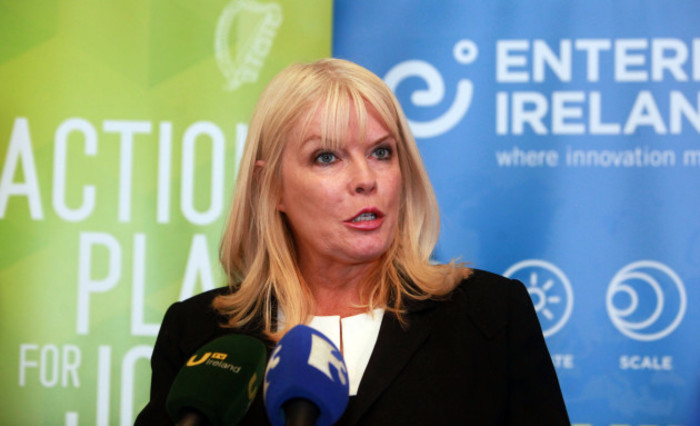'Entrepreneurs find themselves at the end of a budget that shows them nothing but contempt'
The government took the easy route and didn’t address the lack of incentives to start a business.
HOW TO SUM up this year’s budget for entrepreneurs? That’s easy: there’s nothing to sum up.
Once again we have a budget that just shows an Irish government that’s totally clueless towards the needs of entrepreneurs and absolutely blind to the huge advances that the UK and other European countries have made in encouraging huge economic development by creating true, meaningful, supports for their fledgling businesses.
It’s another budget that assumes that every entrepreneur has already made it and is concerned with nothing more than the tax they pay on their capital gains at the very end of their journey.
Another budget where it appears that the only entrepreneurs that ministers and TDs know are the ones that they rub shoulders with in the corridors of power, and not those trying to grow small businesses in their constituencies.
Easy way out
Where are the real incentives to start businesses, like for hiring employees and growing overseas? Where is the help in creating that essential first hire, that massive pain point that every entrepreneur faces where they go from being a business for themselves to a business that has to be responsible for the livelihoods of others.
Instead we see the government take the easiest possible route, doing nothing more than slightly increasing funding to Enterprise Ireland.
Enterprise Ireland has its place and, in those key areas, it excels, but the problem of course is that not every business chooses to engage with Enterprise Ireland and for those who do not, every business will be entitled to support.
 Jobs Minister Mary Mitchell O'Connor
Jobs Minister Mary Mitchell O'Connor
Missed opportunities
Compare Ireland to the recently introduced startup initiatives in Austria, that, as well as substantial increases in available grant and seed funding by government bodies, cover the following key areas:
- Freeing startups of the burden of having to pay auxiliary wage costs for the first three employees for a period of three years
- New risk capital premium for investors: this measure is designed to promote investors acquiring equity stakes in innovative startups
- A new legal entity for innovative startups that aims to stimulate investors into providing risk capital for small- and medium-sized companies
- A digital one-stop shop for founders: The founding process will become quicker and less expensive. The linking of public authorities and registers will enable them to avoid a lot of official red tape
- Founding fellowships for academic spin-offs where students with innovative ideas are supported in their efforts to establish their own companies. The fellowship can ensure the financing of salary costs and access to the academic infrastructure. This measure is funded to the amount of €5 million per year. Some 50 founders will be supported in teams up to the year 2018
- A new visa for self-employed, key workers will be extended to startups. Accordingly, the applicant is given a residence and work permit for self-employed work in Austria for a period of one year, with the option of extending it for an additional year. A further extension will be linked to a specified annual revenue or funding and creation of jobs
 Dogpatch Labs co-working space in Dublin
Dogpatch Labs co-working space in Dublin
In an era where countries are competing for entrepreneurial talent, talent which is now incredibly fluid in terms of the country that it locates in, Ireland is failing to keep up.
Instead of creating a culture that rewards the work and efforts of entrepreneurs by creating direct tax benefits that an entrepreneur can take advantage of and use to reinvest in their new business, we’re still at the back of the European queue when it comes to ideas and doing nothing more than continuing a reliance on a hand-out culture for entrepreneurs.
So where do Ireland’s entrepreneurs find themselves at the end of another budget? Pretty much where they honestly expected to be – at the receiving end of policies that show nothing but contempt for their efforts and economic sacrifices.
It’s a budget that does nothing to support or de-risk the largest generator of employment in the economy and that once again leaves entrepreneurs out in the cold. Fortunately, despite everything, they still have the support of one group; their peers.
Despite lack of government interest, Ireland continues to be one of the most supportive entrepreneurial communities that looks after and support their own. All we can do is hope that some day we might have a government that recognises the tremendous economic benefits that even a little help would provide.
DC Cahalane is the co-founder of BUILTINCORK. He has previously led growth and marketing at high-growth Irish companies like Teamwork and Trustev.
If you want to share your opinion, advice or story, email opinion@fora.ie.






